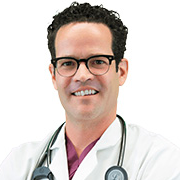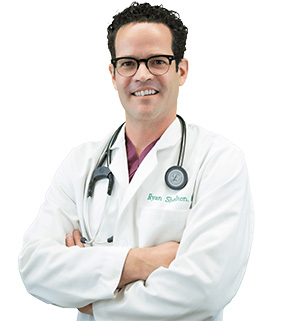Americans are only just recently discovering what other cultures have known forever, that the gut and the microbiota living there are instrumental in overall health. Not only can your gut control the amount of nutrients your body absorbs, but studies show that the microbiota living there can actually communicate with your body via chemical signals, even influencing your metabolism and how the body burns fat.
Probiotics, once an unknown word and concept, have moved into the forefront of the American awareness, largely due to word of mouth touting their ability to help restore gut health. The word probiotics is a general term used to describe all of the microorganisms living in the gut, but not all are beneficial. The gut contains an extremely delicate balance of microorganisms, some which are beneficial and others that are detrimental.
Consuming foods rich in beneficial probiotics, like sauerkraut, dark chocolate, microalgae, fermented foods like miso and kimchi, pickles and tempeh, can help to crowd the gut with good microbes which in turn starve out the bad ones.
Having a well-rounded mix of microbes in the gut provides many benefits to the body, including helping to support healthy immune system function, preventing and treating urinary tract infections, improving digestive function, healing inflammatory bowel conditions like irritable bowel syndrome, managing and treating skin disorders like eczema, fighting food borne illnesses, boosting metabolism and telling the body to burn fat, and even providing support in how the body ages.
Scientists are discovering more benefits of probiotics every day. One recent study suggests that the microbes in the gut can affect how a person ages, helping to “restore acidic skin pH, alleviate oxidative stress, attenuate photoaging, improve skin barrier function, and enhance hair quality.” Researchers believe that probiotics are so integral to our survival, that they can slow the skin manifestations of both intrinsic and extrinsic aging, meaning that they can help the skin age slower at a cellular level in addition to the skin as a whole.
Another study looks at the effects of Lactobacillus gasseri SBT2055 (LG2055), and its ability to extend the lifespan of the animals they inhabit. Studies show that this specific strain of bacteria can help prevent the host from catching influenza A and other viruses, which can also help the host with longevity.
To test its effect on the aging process, scientists examined the effects of LG2055 on lifespan and aging of Caenorhabditis elegans, a species of roundworm that lives in temperate soil environments, and analyzed the mechanism of prolongevity, with the results showing a positive effect on longevity.
Researchers found that “Feeding with LG2055 upregulated the expression of the skn-1 gene and the target genes of SKN-1, encoding the antioxidant proteins enhancing antioxidant defense responses.”
For this study, results showed that LG2055 promoted the roundworm to express a gene that in turn had an antioxidant effect for the roundworm. Antioxidants are extremely important to living organisms, as they remove potentially damaging oxidizing agents, preventing against diseases like cancer.
For the roundworm, research concludes that “feeding with LG2055 is effective to the extend lifespan in C. elegans by a strengthening of the resistance to oxidative stress and by stimulating the innate immune response signaling including p38MAPK signaling pathway and others.”
By introducing the right kind of probiotics to the gut of the roundworm, scientists were able to extend its lifespan. They discovered that the probiotics could cause the roundworm to express certain genes, increasing its ability to fight free radicals, the effect of oxidative stress on molecules in the body. Free radicals are so destructive because they lead to atomic chain reactions that can damage the body’s cells.
Another beneficial strain of probiotics is Lactobacillus plantarum HY7714 (HY7714), with studies showing that it can help slow down the aging process on our skin, the most visible age-identifier on our bodies.
Researchers studied these effects on 110 participants aged between 41 and 59 years, each with noticeable dry skin and wrinkles. Research lasted 12 weeks, during which time participants received either HY7714 or a placebo, measuring the skin for hydration, wrinkles, skin gloss, and elasticity. At the close of the trial, researchers noted significant increases in the skin water content of the face and hands for the group treated with HY7714.
Volunteers in the probiotic group also experienced significant reduction in wrinkle depth, and a significant increase in skin gloss by week 12. Finally, when skin elasticity was measured, the group taking HY7714 had improved elasticity by 13.17 percent by week 4, and almost 22 percent by week 12.
With anti-aging results as promising as these, it won’t be long before people are taking specifically engineered probiotics as part of their skin regimen.
The ability of probiotics to communicate with the body is truly amazing. One thinks of bacteria as tiny organisms without a central intelligence organ like a brain, just trudging around eating things, so it is truly incredible to realize that these tiny, seemingly insignificant organisms are so essential to the function of our body. They can talk to our bodies via the cells in our colon and intestines, relaying chemical messages that can benefit us in ways we’ve yet to fully understand.
Probiotics can be found in over-the-counter treatments like pills, or more easily in certain foods. Some cultures have been consuming them, unwittingly enough, for ages. Asian foods feature many fermented foods like miso and kimchi, each one a probiotic powerhouse. But other cultures enjoy probiotic rich foods as well.
Without the technology to study the mechanisms of fermented foods, these cultures simply relied on their gut to inform them of the benefits of fermented foods. When you eat them regularly, you just feel good.
Miso, or fermented soybean paste, has been found to have radio-protective properties, preventing against radiation effects, but is also a rich source of calcium, isoflavones, and vitamin K, each of which helps maintain bone health. In addition, miso is rich in probiotics, helping to heal the gut and benefit the body in ways yet unknown.
Another great probiotic food is sauerkraut. Cabbage alone is dietary powerhouse, with high levels of dietary fiber, vitamins A, C, K, and many B vitamins, as well as iron, manganese, copper, sodium, magnesium, and calcium. Sauerkraut also contributes a healthy amount of protein to the diet, along with large levels of probiotics to help the digestive tract and help the body absorb all of those nutrients effectively.
Probiotics are nature’s little helpers and chances are you’re not getting enough probiotics in your diet. The Western diet is typically high in fat and sodium, and low in nutrients. Getting more probiotics can require a pretty serious lifestyle change for some, but be assured that your body will thank you for it.










